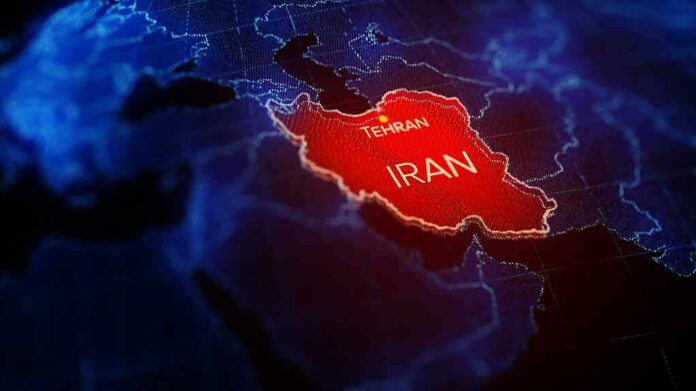Russia has issued an alarming nuclear warning as the Israel-Iran conflict escalates, calling the situation “extremely dangerous” while Israeli strikes on Iranian nuclear facilities rewrite the rules of nuclear deterrence.
Key Takeaways
- Russian Deputy Foreign Minister Sergey Ryabko warns of potential nuclear disaster at Iran’s Bushehr power plant due to ongoing Israeli strikes
- The conflict represents a new “threshold war” where a nuclear power uses force to prevent an enemy from acquiring nuclear weapons
- Israeli strikes on Iranian nuclear facilities began June 13, 2025, with President Trump initially opposing military action but later warning “there’s more to come”
- Experts fear the conflict could trigger global nuclear proliferation as countries conclude nuclear weapons are essential for defense
- Iran has called the attacks “a declaration of war” and vowed to rebuild destroyed nuclear facilities
Russia Sounds Nuclear Alarm Over Israel’s Actions
Russian Deputy Foreign Minister Sergey Ryabko has issued a stark warning about the ongoing Israeli strikes against Iranian facilities, specifically highlighting the dangers posed to the Bushehr nuclear power plant. The Russian diplomat characterized the situation as “extremely dangerous” and emphasized that the current lack of damage to critical nuclear infrastructure is merely a “happy coincidence” that cannot be relied upon as strikes continue. This warning comes as the conflict between Israel and Iran has intensified dramatically following Israel’s unprecedented direct attacks on Iranian nuclear facilities.
The Russian concerns reflect broader international alarm about the potential for nuclear escalation or environmental disaster. With each passing day of the conflict, the risk of miscalculation or unintended consequences grows. Russia’s intervention in the diplomatic conversation underscores the global implications of what began as a regional conflict but now threatens to upend decades of nuclear non-proliferation efforts and established norms regarding attacks on nuclear infrastructure.
A New Era of Nuclear Conflict
The current Israel-Iran hostilities represent what experts are calling a “threshold war” – a new paradigm where a nuclear-armed state uses military force to prevent an adversary from crossing the nuclear threshold. This conflict began on June 13, 2025, when Israel launched strikes specifically targeting Iranian nuclear facilities, an escalation that has fundamentally altered the understanding of nuclear deterrence that has governed international relations for decades.
“The stakes could not be higher, as Iranian officials have called the attack “a declaration of war” and vowed that destroyed nuclear facilities “would be rebuilt.”” – Iranian officials –
The conflict has rapidly evolved into a full-scale war with significant casualties on both sides. Iran has retaliated with drone and missile attacks, while also receiving support from the Houthis in Yemen. The absence of strong Iranian proxies like Hezbollah and Hamas has altered Iran’s strategic calculations, potentially making nuclear weapons seem like the only reliable deterrent against future attacks. This dynamic threatens to accelerate nuclear proliferation rather than prevent it.
President Trump’s Stance on the Escalating Conflict
President Trump’s position on the Israel-Iran conflict has evolved as the situation has developed. Initially favoring diplomatic solutions over military action, the president’s stance shifted significantly after Israel launched its strikes on Iranian nuclear facilities. While still seeking long-term peace in the region, Trump has acknowledged the severity of the current situation and the potential for further escalation.
“U.S. President Donald Trump’s response to the strikes reveals this dynamic starkly. Initially opposing military action and preferring diplomacy to “bombing the hell out of” Iran, Trump pivoted dramatically after the strikes began, and warned that “there’s more to come. A lot more.”” – U.S. President Donald Trump –
The administration has increased the American military presence in the Middle East and is providing Israel with operational support. Meanwhile, scheduled nuclear talks between the U.S. and Iran have been canceled, with Tehran dismissing any such dialogue as “meaningless.” This collapse of diplomatic channels makes the path to de-escalation increasingly difficult and potentially places greater pressure on President Trump to find alternative routes to regional stability.
Global Nuclear Proliferation Concerns
Experts warn that Israel’s attacks on Iran’s nuclear facilities could trigger a dangerous acceleration in global nuclear proliferation. Rather than deterring nuclear ambitions, the conflict may actually reinforce the perception that nuclear weapons are essential for national defense. This could lead to both horizontal proliferation (existing nuclear states building more weapons) and vertical proliferation (non-nuclear states acquiring nuclear capabilities).
“If you look at the last five or six years, you’ve got a repeated series of incidents that demonstrate nuclear weapons are a really, really powerful deterrence” – Robert Kelly –
The Stockholm International Peace Research Institute (SIPRI) has already warned of a new, riskier nuclear arms race emerging globally, with the U.S. and Russia modernizing their arsenals and China rapidly producing warheads. Saudi Arabia has explicitly indicated it would seek nuclear weapons if Iran acquires them, potentially triggering a regional nuclear arms race. Additionally, traditional U.S. allies are increasingly uncertain about relying on American defense commitments, leading some to consider developing their own nuclear deterrents.
International Law and Nuclear Facilities
The International Atomic Energy Agency (IAEA) has taken a firm stance against attacks on nuclear facilities, regardless of context or circumstance. This position is rooted in international law and the principles of the United Nations Charter. The current conflict has raised serious questions about compliance with these norms and the potential consequences of violating them, especially as Iran has threatened to withdraw from the Nuclear Non-Proliferation Treaty (NPT).
“nuclear facilities must never be attacked regardless of the context or circumstances.” – IAEA –
The threshold war model threatens to unravel decades of nuclear governance based on deterrence, potentially leading to cycles of preventive strikes and accelerated nuclear proliferation. With the Strait of Hormuz—a critical chokepoint for global oil exports—at risk of disruption if Iran chooses to close it, the economic implications of this conflict extend far beyond the Middle East. The combination of nuclear risks and potential economic disruption makes this conflict a matter of urgent global concern.











